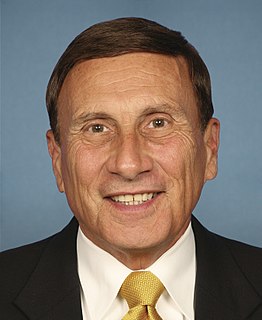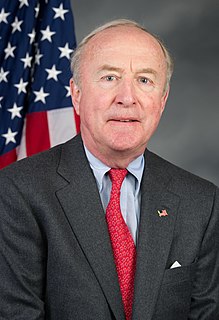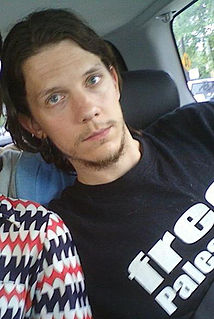A Quote by Susan Collins
In light of the attacks on mass transit systems in other countries, shouldn't we be beefing up?... Clearly more could be done.
Related Quotes
When we have some horrible terrorist attacks happen in some country we see in the recording that follows, that the intelligence community already knew about these people in advance. We know that these countries were involved in intelligence sharing premiums, that they benefited from mass surveillance, and yet they didn't stop the attacks. Yet at the same time we immediately see intelligence officials running to the newspapers and claiming that we need more surveillance, that we need more intrusion, that we need more expense of powers because it could have stopped an attack.
I think that, you know, state and local governments play a critical role in the protection of this country and the protection of certain systems like our mass transit system. And we share information daily with our state and local officials. I think it's one of the reasons that we are safer today and I have every confidence that, in developing its policies, that the New York transit authorities have considered the legal considerations they should be considering in making these kinds of decisions and in formulating this policy.
I created a paradigm by which I could succeed, and up until recently it was the only way I could do it. I could not take the brunt of standing in the light of my own work. There was a Faustian bargain I could not make. I could have you mock me for wearing funny clothes that I could deal with. But I couldn't deal with actually standing in the light of my own musical power. That's the difference now. It's like, okay, no more of that, you're done.
I agree with Peter Drucker that the culture and legal systems of the United Statesare especially favorable to shareholder interests, compared to other interests and compared to most other countries. Indeed, there are many other countries where any good going to public shareholders has a very low priority and almost every other constituency stands higher in line.
9/11 was a gamechanger in so many terrible ways, not just for the United States and for our own national security apparatus but for the whole world. And those attacks blew apart any notion of separation between foreign and domestic threats, any notion that such attacks only happen to other people in other countries.
The Second Wave Society is industrial and based on mass production, mass distribution, mass consumption, mass education, mass media, mass recreation, mass entertainment, and weapons of mass destruction. You combine those things with standardization, centralization, concentration, and synchronization, and you wind up with a style of organization we call bureaucracy.
I think it's very important to remember that so much of the work that gets done between countries is not done at the level of presidents, but is done within various agencies, whether it's law enforcement or economic ministries. And when they establish relationships and systems of communications and shared projects and shared visions, those structures continue even after any particular president is gone. It builds trust and understanding between countries that are critically important.
































